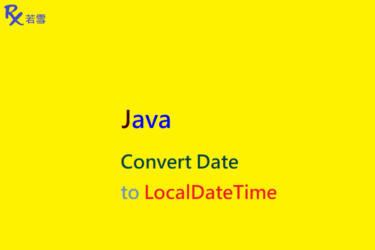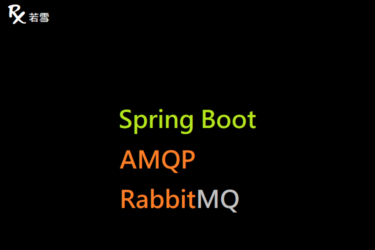Table of Contents
ToggleInitialize LinkedHashMap in Java
初始化 LinkedHashMap 鍵和值不能直接用於基本類型,如 int 、 char 等,必須將基本型別其包裝成類別,才能存入集合,介紹常見的 put 、 putAll 、 doubleBrace 、 immutableMap 等方法,了解初始化 Map 的不同操作和方法, Initialize LinkedHashMap Java 會隨著元素增加或移除,大小自動增長或縮小,本篇增加了範例,並透過單元測試來驗證產出結果。
檔案目錄
./
+- src
+- test
| +- org
| +- ruoxue
| +- java_147
| +- map
| +- linkedhashmap
| +- InitializeLinkedHashMapTest.java 單元測試
Java Initialize LinkedHashMap 提供初始化操作 Map 中的元素。
put
Java Initialize LinkedHashMap 建立 Fruit 物件,覆寫 equals 、 hashCode 提供給集合比較使用,建立一個 LinkedHashMap ,初始化三個元素。
@NoArgsConstructor
@Getter
@Setter
@Builder
public static class Fruit {
private String name;
private double quantity;
private int type;
public Fruit(String name, double quantity, int type) {
this.name = name;
this.quantity = quantity;
this.type = type;
}
public String toString() {
ToStringBuilder builder = new ToStringBuilder(this, ToStringStyle.JSON_STYLE);
builder.appendSuper(super.toString());
builder.append("name", name);
builder.append("quantity", quantity);
builder.append("type", type);
return builder.toString();
}
public boolean equals(Object object) {
if (!(object instanceof Fruit)) {
return false;
}
if (this == object) {
return true;
}
Fruit other = (Fruit) object;
return new EqualsBuilder().append(getName(), other.getName()).isEquals();
}
public int hashCode() {
return new HashCodeBuilder().append(getName()).toHashCode();
}
}
@Test
public void put() {
int expectedSize = 3;
Map<String, Fruit> map = new LinkedHashMap<>();
map.put("Grape", new Fruit("Grape", 1, 1));
map.put("Kiwifruit", new Fruit("Kiwifruit", 2, 1));
map.put("Lemon", new Fruit("Lemon", 3, 1));
System.out.println(map);
assertEquals(expectedSize, map.size());
}{Grape={"name":"Grape","quantity":1.0,"type":1}, Kiwifruit={"name":"Kiwifruit","quantity":2.0,"type":1}, Lemon={"name":"Lemon","quantity":3.0,"type":1}}doubleBrace
Java Initialize LinkedHashMap 建立一個 LinkedHashMap ,初始化三個元素,代表建立並載入一個新的類別,對效能有不良影響。
@Test
public void doubleBrace() {
int expectedSize = 3;
Map<String, Fruit> map = new LinkedHashMap<String, Fruit>() {
private static final long serialVersionUID = -1234223135233714632L;
{
put("Grape", new Fruit("Grape", 1, 1));
put("Kiwifruit", new Fruit("Kiwifruit", 2, 1));
put("Lemon", new Fruit("Lemon", 3, 1));
}
};
System.out.println(map);
assertEquals(expectedSize, map.size());
}{Grape={"name":"Grape","quantity":1.0,"type":1}, Kiwifruit={"name":"Kiwifruit","quantity":2.0,"type":1}, Lemon={"name":"Lemon","quantity":3.0,"type":1}}putAll
Java Initialize LinkedHashMap 建立兩個 LinkedHashMap ,使用給定的 Map 物件,初始化三個元素。
@Test
public void putAll() {
int expectedSize = 3;
Map<String, Fruit> map = new LinkedHashMap<>();
map.put("Grape", new Fruit("Grape", 1, 1));
map.put("Kiwifruit", new Fruit("Kiwifruit", 2, 1));
map.put("Lemon", new Fruit("Lemon", 3, 1));
Map<String, Fruit> newMap = new LinkedHashMap<>();
newMap.putAll(map);
System.out.println(newMap);
assertEquals(expectedSize, newMap.size());
}{Grape={"name":"Grape","quantity":1.0,"type":1}, Kiwifruit={"name":"Kiwifruit","quantity":2.0,"type":1}, Lemon={"name":"Lemon","quantity":3.0,"type":1}}constructor
Java Initialize LinkedHashMap 建立一個 LinkedHashMap ,初始化三個元素。
@Test
public void constructor() {
int expectedSize = 3;
Map<String, Fruit> map = new LinkedHashMap<>();
map.put("Grape", new Fruit("Grape", 1, 1));
map.put("Kiwifruit", new Fruit("Kiwifruit", 2, 1));
map.put("Lemon", new Fruit("Lemon", 3, 1));
Map<String, Fruit> newMap = new LinkedHashMap<>(map);
System.out.println(newMap);
assertEquals(expectedSize, newMap.size());
}
{Grape={"name":"Grape","quantity":1.0,"type":1}, Kiwifruit={"name":"Kiwifruit","quantity":2.0,"type":1}, Lemon={"name":"Lemon","quantity":3.0,"type":1}}immutableMap
LinkedHashMap Initialization Java 建立一個 ImmutableMap 不可變的 Map ,初始化三個元素。
@Test
public void immutableMap() {
int expectedSize = 3;
Map<String, Fruit> map = ImmutableMap.of("Grape", new Fruit("Grape", 1, 1), "Kiwifruit",
new Fruit("Kiwifruit", 2, 1), "Lemon", new Fruit("Lemon", 3, 1));
System.out.println(map);
assertEquals(expectedSize, map.size());
}{Grape={"name":"Grape","quantity":1.0,"type":1}, Kiwifruit={"name":"Kiwifruit","quantity":2.0,"type":1}, Lemon={"name":"Lemon","quantity":3.0,"type":1}}removeThrowException
LinkedHashMap Initialization Java 建立一個 ImmutableMap 不可變的 Map ,初始化三個元素, 操作 remove 方法會拋出例外。
@Test(expected = UnsupportedOperationException.class)
public void removeThrowException() {
int expectedSize = 3;
Map<String, Fruit> map = ImmutableMap.of("Grape", new Fruit("Grape", 1, 1), "Kiwifruit",
new Fruit("Kiwifruit", 2, 1), "Lemon", new Fruit("Lemon", 3, 1));
System.out.println(map);
assertEquals(expectedSize, map.size());
map.remove("Grape");
}
java.lang.UnsupportedOperationException
at com.google.common.collect.ImmutableMap.remove(ImmutableMap.java:917)
at org.ruoxue.java_147.map.InitializeLinkedHashMapTest.removeThrowException(InitializeLinkedHashMapTest.java:131)
InitializeLinkedHashMapTest.java
LinkedHashMap Initialization Java 新增單元測試,驗證是否符合預期。
package org.ruoxue.java_147.map.linkedhashmap;
import static org.junit.Assert.*;
import java.util.LinkedHashMap;
import java.util.Map;
import org.apache.commons.lang3.builder.EqualsBuilder;
import org.apache.commons.lang3.builder.HashCodeBuilder;
import org.apache.commons.lang3.builder.ToStringBuilder;
import org.apache.commons.lang3.builder.ToStringStyle;
import org.junit.Test;
import com.google.common.collect.ImmutableMap;
import lombok.Builder;
import lombok.Getter;
import lombok.NoArgsConstructor;
import lombok.Setter;
public class InitializeLinkedHashMapTest {
@NoArgsConstructor
@Getter
@Setter
@Builder
public static class Fruit {
private String name;
private double quantity;
private int type;
public Fruit(String name, double quantity, int type) {
this.name = name;
this.quantity = quantity;
this.type = type;
}
public String toString() {
ToStringBuilder builder = new ToStringBuilder(this, ToStringStyle.JSON_STYLE);
builder.appendSuper(super.toString());
builder.append("name", name);
builder.append("quantity", quantity);
builder.append("type", type);
return builder.toString();
}
public boolean equals(Object object) {
if (!(object instanceof Fruit)) {
return false;
}
if (this == object) {
return true;
}
Fruit other = (Fruit) object;
return new EqualsBuilder().append(getName(), other.getName()).isEquals();
}
public int hashCode() {
return new HashCodeBuilder().append(getName()).toHashCode();
}
}
@Test
public void put() {
int expectedSize = 3;
Map<String, Fruit> map = new LinkedHashMap<>();
map.put("Grape", new Fruit("Grape", 1, 1));
map.put("Kiwifruit", new Fruit("Kiwifruit", 2, 1));
map.put("Lemon", new Fruit("Lemon", 3, 1));
System.out.println(map);
assertEquals(expectedSize, map.size());
}
@Test
public void doubleBrace() {
int expectedSize = 3;
Map<String, Fruit> map = new LinkedHashMap<String, Fruit>() {
private static final long serialVersionUID = -1234223135233714632L;
{
put("Grape", new Fruit("Grape", 1, 1));
put("Kiwifruit", new Fruit("Kiwifruit", 2, 1));
put("Lemon", new Fruit("Lemon", 3, 1));
}
};
System.out.println(map);
assertEquals(expectedSize, map.size());
}
@Test
public void putAll() {
int expectedSize = 3;
Map<String, Fruit> map = new LinkedHashMap<>();
map.put("Grape", new Fruit("Grape", 1, 1));
map.put("Kiwifruit", new Fruit("Kiwifruit", 2, 1));
map.put("Lemon", new Fruit("Lemon", 3, 1));
Map<String, Fruit> newMap = new LinkedHashMap<>();
newMap.putAll(map);
System.out.println(newMap);
assertEquals(expectedSize, newMap.size());
}
@Test
public void constructor() {
int expectedSize = 3;
Map<String, Fruit> map = new LinkedHashMap<>();
map.put("Grape", new Fruit("Grape", 1, 1));
map.put("Kiwifruit", new Fruit("Kiwifruit", 2, 1));
map.put("Lemon", new Fruit("Lemon", 3, 1));
Map<String, Fruit> newMap = new LinkedHashMap<>(map);
System.out.println(newMap);
assertEquals(expectedSize, newMap.size());
}
@Test
public void immutableMap() {
int expectedSize = 3;
Map<String, Fruit> map = ImmutableMap.of("Grape", new Fruit("Grape", 1, 1), "Kiwifruit",
new Fruit("Kiwifruit", 2, 1), "Lemon", new Fruit("Lemon", 3, 1));
System.out.println(map);
assertEquals(expectedSize, map.size());
}
@Test(expected = UnsupportedOperationException.class)
public void removeThrowException() {
int expectedSize = 3;
Map<String, Fruit> map = ImmutableMap.of("Grape", new Fruit("Grape", 1, 1), "Kiwifruit",
new Fruit("Kiwifruit", 2, 1), "Lemon", new Fruit("Lemon", 3, 1));
System.out.println(map);
assertEquals(expectedSize, map.size());
map.remove("Grape");
}
}心得分享
Java LinkedHashMap Initialize 初始化 Map ,將資料存儲在鍵、值對中,保證新增時的順序,是一個非同步的操作,插入重複鍵,會替換相應鍵的元素,LinkedHashMap Initialization Java 提供了幾種 LinkedHashMap 初始化的操作範例,使用單元測試驗證產出結果。




